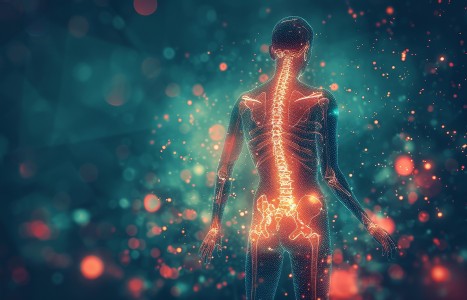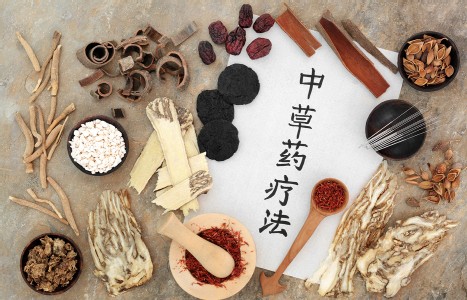Chronic pain afflicts over 20% of the adult population. Sadly, most MDs have essentially no education in treating pain, beyond offering a few toxic medications. Then they tend to steer people with pain away from those health practitioners who are trained. This puts the acupuncture community on the front lines for addressing this epidemic.
Now What? After the Baby Is Born
This month, I am going to depart slightly from my TCM-based column. However, I want to continue the theme of my previous column, which looked at how the skills and yang energy cultivated by the busy career women who see me for fertility problems is probably an impediment to pregnancy. This time, I want to discuss a society-wide phenomenon.
Believe it or not, I am going to start off by discussing feminism and the feminist movement in general. The main aim of the feminist movement is equality between genders. In theory, a baby boy and baby girl should have the same opportunity to succeed in life, based upon their own efforts and skills, and not be held back by their gender. One main thrust of the feminist movement is focused on employment. Again, both men and women should have access to the same opportunities in the work force.
Things have come a long way. My mother, now in her mid-60s, told me she was given three career choices by my grandfather. She could be a teacher, a secretary or a nurse. According to him, these were the only occupations suitable for a woman. My mom became a nurse and loved her career. She confided in me, however, that she would have gone to medical school to become an MD instead, if it had been up to her. In some ways, my mom was lucky. For some women of her generation, becoming a wife and a mother was the only really acceptable role. Any job they got was just temporary until they started to have kids. Who knows, but maybe that is what my grandfather was thinking when he limited her to those three choices. Thankfully, for most women in the developed world today, their choice of careers usually is not limited by their gender.
A woman's place is no longer just at home. Women choose to be in the paid work force rather than stay at home and be a homemaker/mother. All other things being equal (which, until everyone has the same access to education and job opportunities, they are not), women today can generally choose whatever career they wish. That is not to say her opportunities for advancement in that career necessarily are equal to men, but things are certainly better for my sister than they were for my mom or my grandmother.
Or are they really better? That is the question I want to explore with the rest of this article. When I was writing the first line of the previous paragraph, "A woman's place is no longer just at home," I slipped up and initially wrote, "A woman's place is not at home." I believe that Freudian slip more accurately reflects the current state of affairs in our society.
How many of you were raised by mothers at home? I am 39 years old this year. When I grew up in the 1970s, I can't think of a single family on my street that did not have a mom at home before her kids went to school. There were a few who went back to work once the kids were in school full-time, but even then, most stayed at home. Look around now and see how many mothers or fathers there are at home with their kids. In my neighborhood (and with my friends and family), the norm is the reverse. Once maternity leave is over (in Canada, we are lucky enough to have a one-year paid maternity leave for mothers and 35 weeks for fathers), the vast majority of women go back to work and leave the care of their children to day care, grandparents or nannies. There are numerous factors involved here, including the increased cost of living and, probably more importantly, the priority we place on making the money for the material things we "need" to maintain our lifestyles. However, the one factor I want to focus on is the reduced social status our society places on motherhood.
I know some of you are jumping out of your seats and shouting to the rafters, "That's not true! I love my mom!" For those of you who do not believe me, try this out. The next time you are at a social outing, watch what happens when a woman (or, God forbid, a man) answers the question, "So what do you do?" with "I stay at home with my kids." Most of the time, the questioner's face drops and their reaction is, "Oh, that's nice." Then they move on to someone else. There is no stronger conversation-stopper at a social outing than those few words: "stay-at-home mom." Motherhood, on its own, no longer confers good social status.
I believe this is an unfortunate and unintended consequence of the feminist movement. Now, a woman not only has the choice to have a career, but also is looked down upon if she does not have a career. If a woman chooses to stay at home and raise her kids, she is seen as (and often feels) somehow less than others. There is a not-so-subtle bias/suggestion that women who do not go back to work do not have a career worth going back to. Scratch a little deeper, and the underlying attitude is that you are less of a woman, cannot handle a career and motherhood, and are not a real woman if you do not go back to your career. Staying at home with your kids is not seen as a valid expression of a thinking adult woman who is working toward self-improvement.
Being a mom is viewed as taking a break from personal goals and career. Our society so values individual freedom and autonomy that being a mother is now seen as a step back, not as an invaluable role in our society. On some level, most of the new mothers I know are wracked with guilt and self-doubt because they feel "just" being a mother is not enough; if they somehow are not doing more, they are failing themselves and their children.
What is even crazier is that moms now are expected to do more than at probably any time in history. Not only should she look after the kids - she also should be getting fit; taking her kids to piano lessons, soccer, gymnastics, swimming and scouting; maintaining an active social life; taking pottery classes; cooking for her family; keeping the house clean; having sex with her husband a few times a week; looking after her aging parents; and still finding time to volunteer at the school. It breaks my heart to hear these women beat themselves up, feel guilty and wonder what is wrong with them because they can't keep up with these lists of impossible goals they think they have to accomplish to be "successful."
I am not sure there are any easy solutions to this trend. To evolve and grow as a person, we must challenge ourselves to change and learn from our mistakes. The flip side of this is that we also must love ourselves as we are. This is an interesting contradiction. To achieve personal growth, we must love ourselves as we are and also not be satisfied with how we are so we can change and grow. Both aspects are pivotal. If we are too satisfied with how we are, we stagnate and shrivel up into the ever-shrinking box of things we are comfortable doing. If we push ourselves too hard, we become too self-critical and are wracked with self-doubt.
To tie this all together with Chinese medicine, two contradictory but necessary poles sounds an awful lot like basic yin and yang theory. How we merge these two contradictory yin/yang opposites dictates how happy we are with our lives. As you can tell by this article, I think, as a society we have strayed too far to one side.


